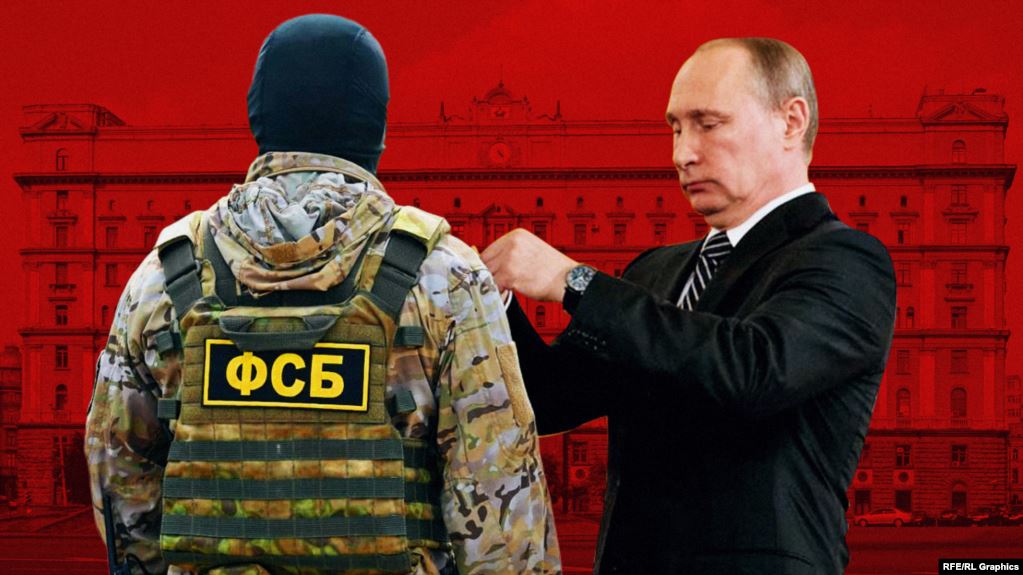There is a presumption that the Federal Security Service (FSB) of the Russian Federation has significant influence over the executive power in Russia and uses methods and tools inherited from the Committee for State Security (KGB) of the Soviet Union.
One such tool is the use of so-called undercover agents—seconded officers. To prove or disprove this presumption, Vadim Chernysh, Chairman of CENSS, conducted research, in which he reviewed the relevant KGB documents regulating the use of seconded officers and analyzed information from open sources about similar activities of the FSB of Russia. The results of this research are presented in an article published in the Strategic Security journal (Global and National Security Institute, University of South Florida, USA).
Here are some key points from the article:
- During the Soviet era, there was a continuous practice of seconding KGB officers to civilian institutions, and modern Russia continues to use this practice. Documents from the KGB confirm the activity of undercover agents, including the December 24, 1958, Instruction on working with active reserve officers seconded to civilian ministries and agencies, and the October 12, 1982, Regulation on active reserve officers. Regarding the post-Soviet era, in 1995, the Russian parliament passed the “Federal Security Service Law,” which defines the FSB as the centralized system of agencies ensuring national security. This law grants the FSB the power to second its employees to both state and non-state organizations, regardless of ownership, while keeping them in military service. Moreover, the FSB Regulation, approved by the Russian president in 2003, specifically paragraph 43, mentions the FSB’s power to second officers to third-party organizations. It is important to note that the 1982 KGB Regulation on active reserve officers is still officially inaccessible to the public in Russia, which may explain its repetition in the FSB’s current internal documents.
- Undercover officers from the KGB era were responsible for a wide range of counterintelligence measures, thereby ensuring the overall goal of the KGB to increase its influence within state power structures. The FSB holds similar unrestricted powers today. The 1958 document tasked reserve officers with working solely with classified information within controlled objects. However, the 1982 regulation expanded their role, allowing them to counter ideological subversion, infiltrate enemy intelligence services, and anti-Soviet centers abroad, identify spies and so-called agents, disrupt espionage and sabotage activities, gather state-sensitive information, assist leadership, and conduct so-called preventive work. In modern Russia, particularly Articles 6 and 13 of the Federal Law “On Operational-Search Activity” grant the FSB the right to conduct covert or secret operational-search measures (interrogations, fact-checking, research on objects and documents, surveillance, inspections of premises and vehicles, mail control, wiretapping, etc.).
- There is another common trait between the methods of the KGB and the FSB: from the start of their mission, seconded officers have close relationships with the leaders of the target organizations. The activity of undercover agents is classified, although the leaders of the organizations to which they are sent are aware of their affiliation with the intelligence services, which in turn establishes special confidential relations.
- FSB leaders carry the professional mindset and experience of the KGB, which used seconded officers for an extended period and perfected the use of this influential tool. Therefore, there is no reason to abandon it, especially when the leaders know how to use it effectively. For example, the acting director of the FSB, Alexander Bortnikov, started his career in the KGB in 1975. All of his deputies are also former KGB officers. The previous FSB director, Nikolai Patrushev, who held the position from 1999 to 2008, began his career in the KGB in 1974.
Thus, it can be confidently stated that the FSB follows the tactics, methods, and principles of the KGB by secretly appointing its officers, at least some of them, to civilian executive government bodies and federations.
Understanding the role of the FSB in Russia’s state power system can help foreign policymakers and intelligence services who deal with the Russian Federation. This article may be of interest to international organizations working in Russia to be aware of how the FSB may influence executive decisions related to their activities. It will be especially useful for NGOs monitoring democratic and undemocratic processes in Russia and the state of human rights in the country.
The full text of Vadim Chernysh’s article in English can be found at: https://digitalcommons.usf.edu/cgi/viewcontent.cgi?article=2164&context=jss


